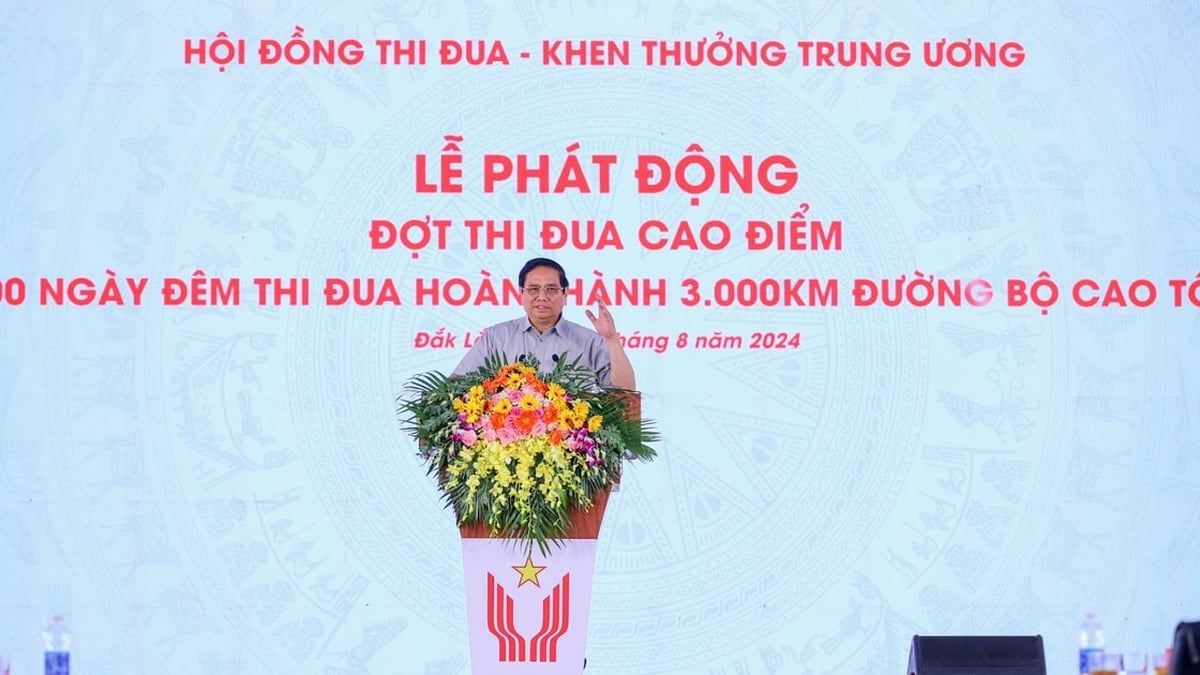On the morning of September 28, the National Assembly Standing Committee gave opinions on the draft Resolution of the National Assembly on applying additional corporate income tax according to regulations against global tax base erosion.
Applying global minimum tax rules brings new opportunities for Vietnam
Authorized by the Government, Minister of Finance Ho Duc Phoc presented the Government's Proposal stating: The global minimum tax is not an international treaty, not an international commitment, and does not require countries to apply it. However, if Vietnam does not apply it, it must still accept that other countries apply the global minimum tax, and have the right to collect additional taxes on enterprises in Vietnam (if subject to application) that enjoy an actual tax rate in Vietnam lower than the global minimum rate of 15%, especially enterprises with foreign investment capital.
To ensure its legitimate rights and interests, Vietnam needs to affirm the application of the Global Minimum Tax. According to the guidance of the Organization for Economic Cooperation and Development (OECD) on regulations against global tax base erosion, the Global Minimum Tax is essentially an additional corporate income tax and countries need to regulate it appropriately in their legal systems.
The application of global minimum tax regulations brings new opportunities to Vietnam, specifically: Increasing state budget revenue from additional tax collection; Strengthening international integration; Minimizing tax evasion, tax avoidance, transfer pricing, and profit transfer.
Accordingly, the purpose of developing the Resolution is to develop a Global Minimum Tax policy to be applied from 2024; Ensure the legitimate rights and interests of Vietnam; Create a level of trust between businesses and the Government so that businesses continue to invest and expand investment in Vietnam; Demonstrate progress and transparency in the tax management system and business investment environment approaching international standards; Maintain current preferential policies applicable to businesses not subject to the Global Minimum Tax.
The Draft Resolution consists of 9 Articles regulating: Scope of regulation; Taxpayers; Interpretation of terms; Regulations on minimum standard domestic supplementary corporate income tax; Regulations on minimum taxable income synthesis; Regulations on Tax declaration and payment; Implementation organization; Enforcement provisions.
Must ensure clarity and specificity for ease of implementation.
Presenting the report on the review of the National Assembly's draft Resolution on the application of additional corporate income tax according to the regulations on preventing global tax base erosion, Chairman of the National Assembly's Finance and Budget Committee Le Quang Manh said that the Standing Committee of the Finance and Budget Committee agreed that it is necessary to issue legal documents to create a basis for foreign invested enterprises (FIEs) subject to GloBE regulation to be able to declare and pay additional corporate income tax and feel secure about the legal environment in Vietnam.
In the context that the Government has not yet implemented the plan to amend and supplement the Law on Corporate Income Tax to stipulate in the Law the contents related to the TTTC, the majority of opinions in the Standing Committee of the National Assembly's Committee for Tax Administration agreed that it is necessary to temporarily issue a Resolution (pilot) of the National Assembly on the application of additional corporate income tax according to the OECD's regulations on preventing global tax base erosion before amending the Law; at the same time, it is requested that the Government clearly report the plan and time to amend and supplement the Law on Corporate Income Tax and the expected time of implementation to ensure that tax contents must be uniformly stipulated in the Law.
Regarding solutions to implement the Resolution, the TCNS Committee requests the Drafting Agency to report more clearly on the preparation and implementation of these contents to ensure the necessary conditions for the implementation of the Resolution.
Regarding the provisions on taxpayers (Article 2), the Standing Committee of the Tax Administration Committee believes that the provisions in the draft Resolution must comply with the OECD regulations but must ensure clarity and specificity for ease of implementation. The fact that the draft Resolution does not specifically stipulate related contents and only refers to regulations according to the GloBE Regulations will not ensure the clarity, transparency and specificity of the Resolution. Therefore, it is recommended that the Government consider internalizing the relevant provisions. In case this content cannot be expressed in the draft Resolution, the Government's Submission must report and clearly explain the reasons and at the same time, have a plan to assign the Government to specify details in documents guiding the implementation of the Resolution.
Regarding the deadline for tax declaration and payment (Article 6), it is recommended that the Drafting Agency consider adding a provision allowing taxpayers to consult with tax authorities to handle and adjust technical differences in accounting systems, etc. appropriately.
Concluding the working session, National Assembly Standing Vice Chairman Tran Thanh Man stated that the National Assembly Standing Committee agreed on the authority to issue, the necessity, the objectives and the name of the draft Resolution of the National Assembly on the application of additional corporate income tax according to regulations against global tax base erosion.
The National Assembly Standing Committee proposed that the Government review the contents to ensure consistency in the legal system. For concepts that have not been specifically regulated in the laws, it is necessary to consider and carefully review to comply with the principles guided by the OECD and ensure the accuracy, specificity and ease of understanding of each content stipulated in the Resolution. Assess the impact as well as specify more clearly the solutions to ensure the implementation of the Resolution to avoid conflicts and international disputes as well as the mechanism for information exchange or coordination to resolve problems arising during the implementation process.../.
Source link



































































































Comment (0)